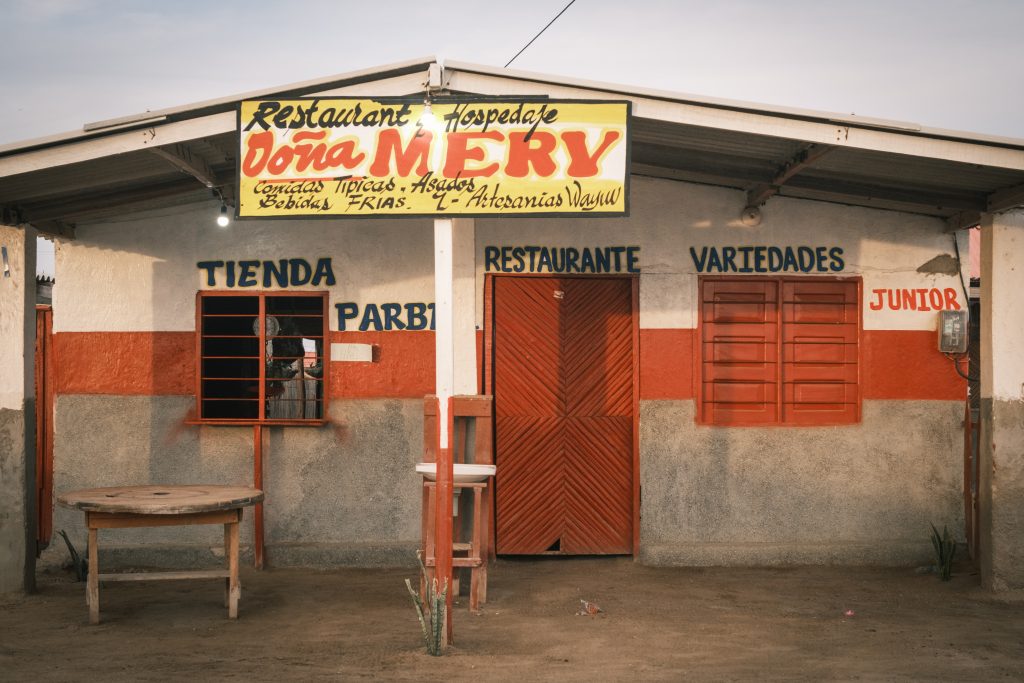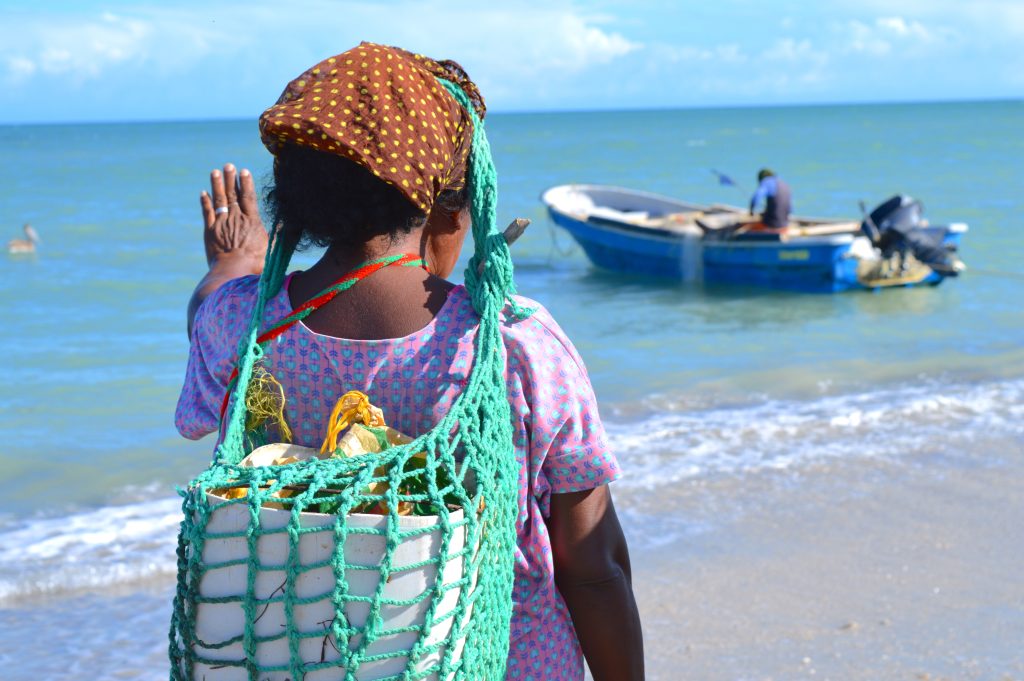
Tourism Wayuu brings both opportunities and challenges to the Wayuu people, affecting their traditions, economy, and fragile environment in La Guajira.
Reducing Economic Inequalities through Tourism Wayuu
To mitigate inequalities within the context of tourism Wayuu, it is essential to:
These strategies support fair compensation, economic participation, and the development of inclusive, sustainable tourism models for the Wayuu community.
Nature at a Crossroads: Environmental Dimensions of Tourism Wayuu
Sustainable Tourism and Conservation
Sustainable tourism Wayuu provides an opportunity to protect the unique natural landscapes of La Guajira. This model aims to minimize environmental impact while supporting the local Wayuu population and biodiversity.
Sustainable tourism can also fund conservation projects and promote responsible practices that align with Wayuu values.
Ecological Threats
The increasing volume of tourism threatens La Guajira’s delicate ecosystems. Pollution from vehicles, solid waste, and overuse of natural resources—especially water—are critical issues. Infrastructure development for tourism, if not carefully planned, can further degrade habitats.
Must prioritize:
Visitor education on La Guajira’s ecological fragility and responsible behavior.
Ecotourism that involves community participation and environmental education.
Sustainable infrastructure with proper waste and water management.

Social Visibility and Cultural Identity
The community has amplified the voices of the community, promoting cultural pride and raising awareness of social issues. Cultural exchanges through tourism have helped the Wayuu reaffirm their identity and advocate for their rights.
Social Gaps and Resource Competition
Despite its benefits, the indigenous can worsen inequalities due to lack of access to quality education, healthcare, and infrastructure. High illiteracy and limited opportunities prevent many Wayuu from fully engaging in the tourism sector. Additionally, resource competition, particularly over water, can lead to internal tensions.
Empowerment strategies include:
Governance and the Role of Policy
Supportive Policies
Effective governance is crucial for the success of tourism Wayuu. Policies should promote local ownership, transparency, and long-term sustainability.
Challenges to Implementation
Corruption, mismanagement, and the dominance of external corporations hinder policy effectiveness. The presence of multinational companies—especially in mining—can create additional social and environmental tensions.
Governance must include:
A Future Shaped by Sustainable Tourism Wayuu
Respectful Tourism Models
Inclusive and sustainable tourism Wayuu models are key to preserving Wayuu heritage. These should prioritize community input, cultural preservation, and equitable economic benefit.
Challenges and Opportunities
Balancing economic development with cultural and environmental preservation is the central challenge. Nonetheless, the community offers avenues for empowerment, employment, and global cultural recognition.
In conclusion, the future of tourism Wayuu depends on the community’s ability to manage tourism responsibly. With inclusive governance, respect for cultural authenticity, and environmental consciousness, tourism Wayuu can become a powerful force for positive transformation.
Cultural Preservation vs. Commercialization
Cultural Empowerment through Tourism
Initiatives like Macuira Tours highlight how tourism Wayuu can preserve traditions such as mochila weaving, traditional dances, and spiritual ceremonies. Brands like Cosecha Bags also promote Wayuu craftsmanship through ethical fashion on social media. These practices not only enhance cultural pride but also generate income.
Risks of Commercialization
The commodification of Wayuu items, especially mochilas, may compromise their cultural and spiritual significance. Mass production for tourists can erode traditional methods, values, and sustainability.
To protect authenticity, the community should:
Tourism Wayuu Between Prosperity and Inequality
Economic Opportunities
Tourism provides new income sources during environmental and economic crises. The crafts and hospitality sectors benefit significantly, diversifying the Wayuu economy beyond agriculture and livestock.
Persistent Disparities
Yet most tourism businesses are owned by outsiders, with profits often leaving the community. Unfair labor conditions and poor compensation highlight the need for community-led initiatives.
Tourism Wayuu must strive for equity by:
With a balanced, respectful, and community-driven approach, tourism Wayuu can help preserve the Wayuu identity while building a sustainable future for generations to come.
Discover our online store featuring a stunning collection of Wayuu bags. Shop now and embrace the beauty of tradition!